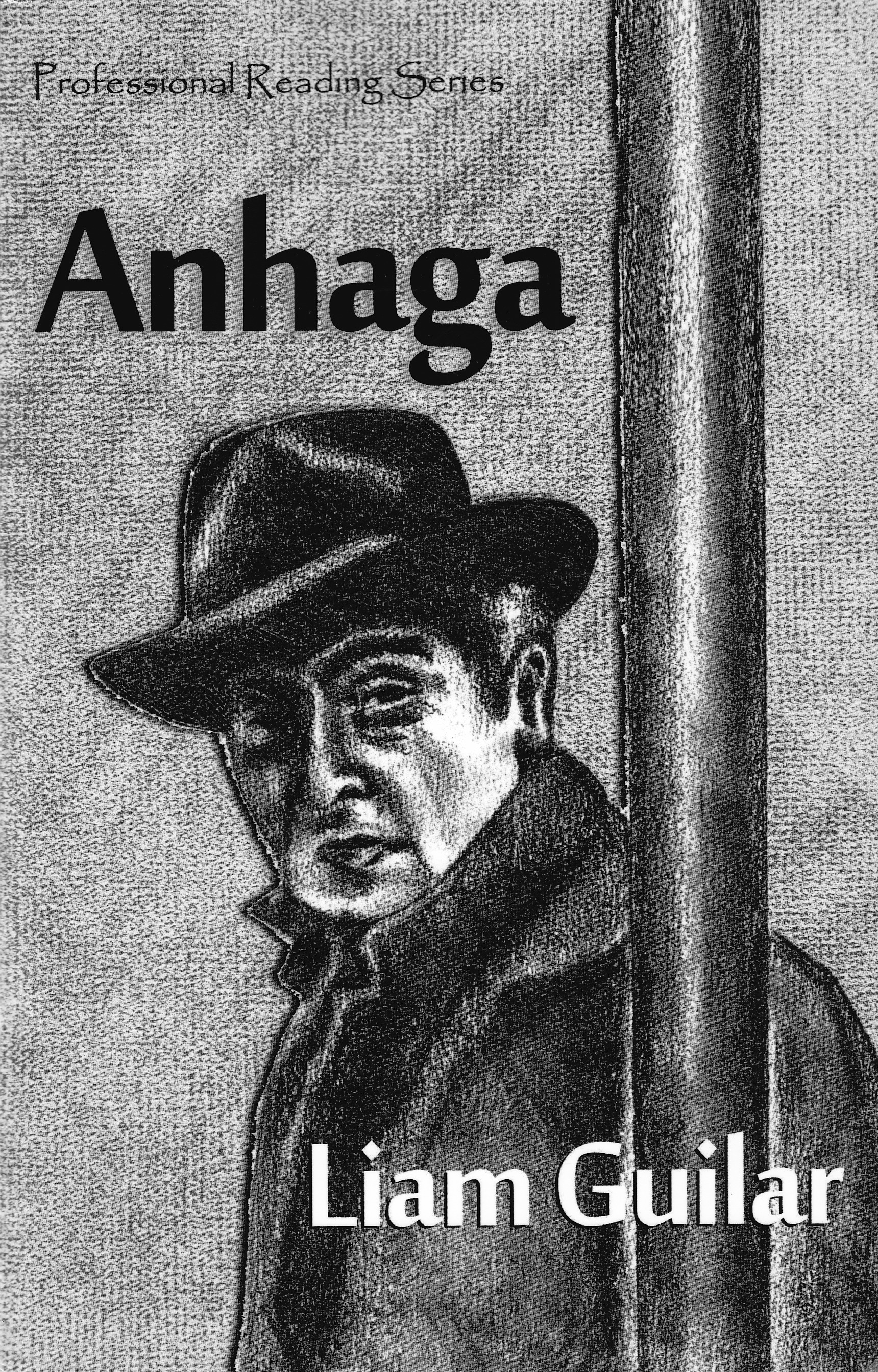Mr. Normal gets the 7.40 every morning
so what’s he doing in my mirror
I was born adult in a rented room.
Opened boxes on the floor,
a desk, a chair, a bed, a wardrobe,
a full length mirror on its door.
The revenant scratching at my window
demanding recognition, is myself.
Currently only Available from the Shop on this website.
Mr. Noddy Nobody
blown in from nowhere
about six months ago,
about the time that first body
turned up in the park.
'Exsanguinated bodies in the local park'.
The papers think a vampire's on the loose. The chief suspect in the murder enquiry claims to have no memory of who he is or how he came to be living nearby. He claims he cannot tell the difference between his memories and his dreams, between what he's read and heard and done. He claims Mr. Normal is living on the other side of his mirror, telling him what to do.
A man in fugue, a complicated alibi to protect the Killer, or simply a case of reincarnation gone wrong?
Moving from the modern to the early Medieval, the poems in Anhaga put the reader into the central character's predicament: A gothic tale, a psychological thriller, a fantasy of past lives, a detective novel or a horror story? There are clues and too much information. Coherence and meaning are what the reader makes as the central characters struggle to do the same.
Pre-Publication Praise for Anhaga
(THE BLURBS)
“A dark and disturbing Gothic epic. Guilar sends precise notes from a dystopian shadow world where nothing is as it seems. His meditation on murder and slaughter draws on The Wanderer and Canu Heledd, Wyatt, Wordsworth, seventeenth century tragedy, the great modernists, Eliot, Pound, Basil Bunting and Yeats through to Warner Bros cartoons and Victorian songs to create a dreamscape at one familiar and uncanny.” --Richard Burton, A Strong Song Tows Us, The Life of Basil Bunting, Prospecta Press, 2013
"With echoes ranging from the Old English The Wanderer to Basil Bunting’s Briggflatts, from Eliot’s Sweeney Agonistes to Chandler’s Philip Marlowe, from the loneliness of Larkin’s Mr. Bleaney to the literary hijinks of Paul Muldoon’s Madoc, Liam Guilar’s Anhaga is a high calorie poetic who-done-it, an all-you-can eat literary smorgasbord. But the real star of the show here is the good old English language, shape-shifting and scrumptious and spicy as hell. That is to say, Guilar’s poetry is the salsa picante on the chili relleno of life!" -- George Bilgere, Imperial, Pitt Poetry Series, 2014
"Anhaga is both erudite and up-to-the-minute, in a wild mix of styles that recalls at times the verbal trickery of Joyce and at times the pangs of the Old English lyric, and with a plot that keeps us reading and guessing." -- Maryann Corbett, Mid-Evil, University of Evansville Press, 2015
"I can imagine Liam Guilar dancing naked into a realm of unknowing and staying there, but his particular gift is the speech between knowing and not. Guilar's fifth book will have you wondering if the poems are not some unearthed lost manuscript. His music feels timeless, these intimate, winking poems are not afraid, but you will feel cowardice creeping along the neck as you read -- for no human should have the audacity to be so honest, beautiful and searching as this Liam Guilar." -- RA Washington, The Complete Revised Huebris, Small Victories Press, 2014
"Liam Guilar is a poet who seems at home in different ages and languages. While most of his poems are thoroughly modern, they are informed by the vast English poetic tradition, going back to the ancient Anglo-Saxon scops. This gives him a unique sound, one that I find personally refreshing. Anhaga is a book lovers of the English language are likely to relish." -- Michael R. Burch, Editor, The Hyper Texts, http://www.thehypertexts.com, 2010
"In an atmosphere of alienation, bereavement and inching menace, the lone protagonist(s) of Liam Guilar's fifth book struggle with questions of identity, urges borne of lust/desperation and the futility of self-actualization. The ordinary is pitted against the iconic and majestical in this strange and unsettling book." -- Alexandra Oliver, Meeting the Tormentors in Safeway Paperback, Biblioasis 2013
"Liam Guilar's poetry wanders with a intriguing focus riffing on everything from Jack the Ripper, answering machine messages, and of course the unpredictable contents of forgotten box of DVDs. Guilar's sense of Fantasy propels his wonderfully narrative works along sometimes ancient roads and odd streams of thought. These are the kind of streams we should seek to cross." -- Mark S. Williams, Transformers: Retribution, Penguin Random House, 2014
"Liam Guilar’s epic book Anhaga consits of two halves directly related to each other. In the first we see a murder - a sex crime - enacted on several levels moving between children’s stories, through hard-boiled detective fiction, tough realism and slasher movies. The central voice, beset with loneliness - exile as the poem has it -- and frustration shape-shifts between its various literary and mythical contexts, but is always at the edge of explosive violence. In the second we sail far closer to myth with the figures of Heledd and Nemain. Basil Bunting’s Briggflats haunts the book. The blend of sensational fiction and high literary ambition make Anhaga an extraordinary poetic experience." -- George Szirtes, The Burning of the Books and Other Poems, Bloodaxe, 2009
"In this challenging collection, Liam Guilar taps into undercurrents of loss and violence that run through sociities from Old English to contemporary. Recurring figures like Mr. Normal and PC Plod do their best to keep things average, but the poet's imagination jumps them into vampiric dream and fantasy states. Guilar's style is eclectic, ranging from rhyme to quoted speech, with bits of narrative running up against emotional displacement and a sense of loss. Orchestrating all these elements, he wanders readers through the complexities of life." -- John Oughton, Death By Triangulation, Neopoiesis Press, 2015
"One of the most original and yet utterly accessible books I've read. I'm immediately taken in by the colloquial language; I’m made to feel welcomed and at ease. And yet, within the first couple of poems it becomes clear that, while the language may well be colloquial and what's going on in these poems may ‘feel’ familiar, there is absolutely NOTHING ‘ordinary’ about them! What a fabulous book." -- John L. Stanizzi, After the Bell, Big Table Publishing, 2015
“Liam Guilar takes the reader into a world not quite of here and not quite of now. The poems are set in periods from the mid 50s, not long after the war, to the present day and include skilful twists of early England and even traditional folk lyrics. These are honest, solidly wrought poems, pulled up from their subject matter like prize crops from an allotment.
These inspiring poems can be read individually, but are also woven into a memorable, rich whole, which becomes the poetic environment through which the reader walks. With Modernist echoes and the injection of popular crime drama, this is a collection which is immediate, but gives again when re-read. The title refers to the Old English poem The Wanderer and there are cleverly-drawn parallels throughout the poems here to the experiences and estrangement of the exile in the original.’ -- Simon Williams, A Place Where Odd Animals Stand, Oversteps Books, 2012
“Anhaga” means “wanderer” in Anglo-Saxon, and Liam Guilar uses this prototype of English to accent his poetry. The language play draws us into a murder mystery without our realizing it. Primal themes of vampirism, war, and sacrifice coexist with commuter trains and plodding police work. The undead––quintessential wanderers––repent on occasion. “…once the tearing starts / there will only be reactions….” -- Anne-Adele Wight, Opera House Arterial, BlazeVox, 2015

